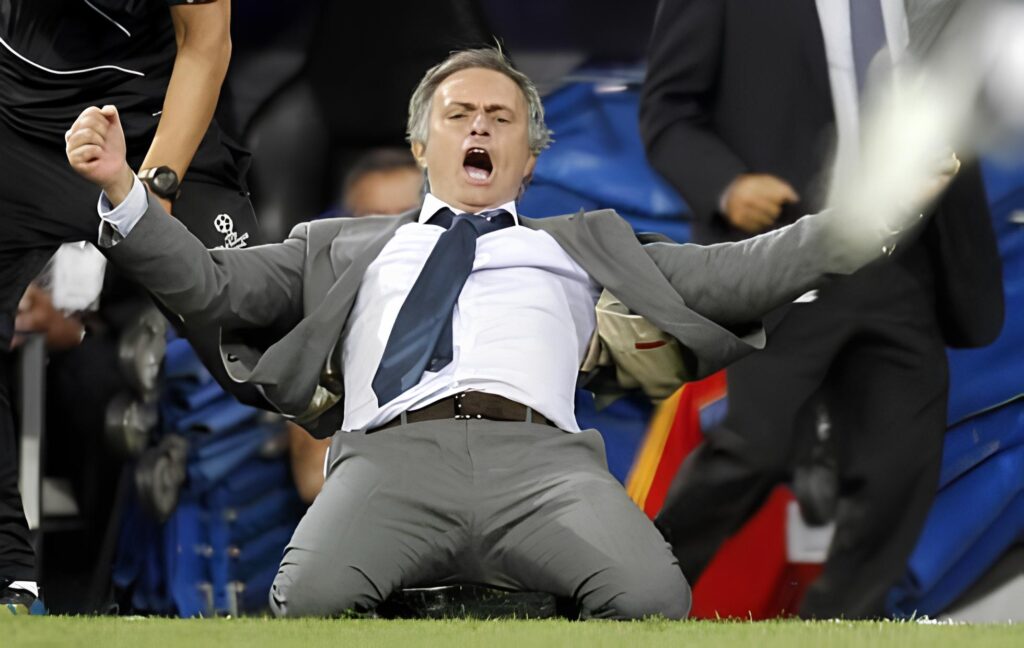José Mourinho's Tactical Masterclass: The Evolution of a Football Genius
Few managers in the history of football have influenced the game as profoundly as José Mourinho. Known as The Special One, Mourinho’s career has been defined by his ability to adapt, innovate, and impose his tactical philosophy on every team he has managed. This article delves into Mourinho’s tactical evolution and explores how his strategies have left an indelible mark on football.

Mourinho's Tactical Philosophy: The Foundations
At the heart of Mourinho’s tactical philosophy lies an unyielding emphasis on organisation, discipline, and pragmatism. His approach is rooted in:
Defensive Solidity:
Mourinho prioritises a well-structured defence, often utilising a compact block to deny space to opponents.
Counter-Attacking Efficiency:
Quick transitions from defence to attack are a hallmark of his teams, exploiting opposition weaknesses in moments of disorganisation.
Adaptability:
Mourinho tailors his strategies to each opponent, making his teams unpredictable and highly effective.
First José Mourinho's Tactical Masterclass, the Porto Era: The Rise of 'The Special One'
Mourinho’s breakthrough came with FC Porto, where he implemented a 4-3-1-2 formation that emphasised defensive robustness and swift counter-attacks. Key achievements included:
- UEFA Champions League 2003/04: Porto’s remarkable victory showcased Mourinho’s tactical acumen, as his team outmanoeuvred Europe’s giants with clinical efficiency.
- Key Players: Deco served as the creative fulcrum, while the defensive duo of Ricardo Carvalho and Jorge Costa provided solidity.
Chelsea: Pragmatism Meets Premier League Dominance
Mourinho’s first stint at Chelsea (2004–2007) established him as a global icon. He favoured a 4-3-3 formation with:
A Solid Defensive Core:
John Terry, Ricardo Carvalho, and Petr Čech formed a near-impenetrable backline.
Dynamic Midfield Play:
Frank Lampard and Claude Makélélé excelled in their respective roles, with Makélélé mastering the defensive midfield position.
Adaptable Offence:
Didier Drogba spearheaded the attack, excelling in both physical duels and hold-up play.
During this period, Mourinho led Chelsea to back-to-back Premier League titles, breaking numerous defensive records.
Inter Milan: Mastering Counter-Attacking Football
Mourinho’s tenure at Inter Milan (2008–2010) is often regarded as his tactical zenith. Using a compact 4-2-3-1 formation, he guided Inter to a historic treble in 2010.
Defensive Discipline:
Players like Walter Samuel and Lucio embodied Mourinho’s philosophy of defensive sacrifice.
Key Tactical Masterpiece:
The Champions League semi-final against Barcelona saw Inter play a near-perfect defensive game, nullifying Pep Guardiola’s attacking juggernaut.
Attacking Stars:
Wesley Sneijder’s creativity and Diego Milito’s clinical finishing were instrumental.
Real Madrid: Blending Strategy with Star Power
At Real Madrid (2010–2013), Mourinho faced the challenge of managing a team of global superstars while maintaining his tactical principles.
Emphasis on Speed:
Mourinho’s Real Madrid became synonymous with devastating counter-attacks, often involving Cristiano Ronaldo, Ángel Di María, and Mesut Özil.
Breaking Records:
The 2011/12 team scored a record-breaking 121 goals in La Liga, showcasing a more attacking side to Mourinho’s tactics.
Clashes with Guardiola:
His rivalry with Barcelona’s Pep Guardiola defined this era, with Mourinho often employing physical and disruptive tactics to counter Barça’s tiki-taka.
Return to Chelsea and Manchester United: Tactical Adaptability
Mourinho’s second spell at Chelsea (2013–2015) and his tenure at Manchester United (2016–2018) demonstrated his ability to evolve:
Chelsea:
He implemented a balanced 4-2-3-1 system, winning the Premier League in 2014/15.
United:
At Manchester United, Mourinho adapted his tactics to a team in transition, winning the Europa League and EFL Cup in 2017. Despite criticism for perceived defensive approaches, Mourinho remained steadfast in his belief that winning is paramount.
AS Roma: Reinventing Himself in Italian Football
At AS Roma (2021–present), Mourinho has re-embraced his Italian roots, focusing on defensive solidity and building a cohesive unit.
Formation Flexibility:
Shifting between 3-4-2-1 and 4-2-3-1, Mourinho has tailored his approach to Roma’s squad.
Success with Limited Resources:
Leading Roma to their first-ever UEFA Europa Conference League title in 2022 highlights his ability to achieve results, even with less-fancied teams.
Defensive Organisation: The Mourinho Blueprint
Across all his teams, Mourinho’s defensive strategies have been a defining characteristic. His emphasis on compactness, communication, and positional awareness ensures his teams are difficult to break down.
Key Players in Mourinho’s System
Mourinho has always built his teams around specific profiles:
- Creative Playmakers: Deco, Sneijder, Özil.
- Physical Strikers: Drogba, Milito, Lukaku.
- Defensive Anchors: Makélélé, Cambiasso, Kante.
Legacy and Impact on Modern Football
José Mourinho’s tactical innovations have influenced generations of managers. His approach has proven that adaptability and pragmatism can rival any attacking philosophy. While often criticised for prioritising results over aesthetics, his ability to win in various leagues and competitions cements his place as one of the greatest managers in football history.

